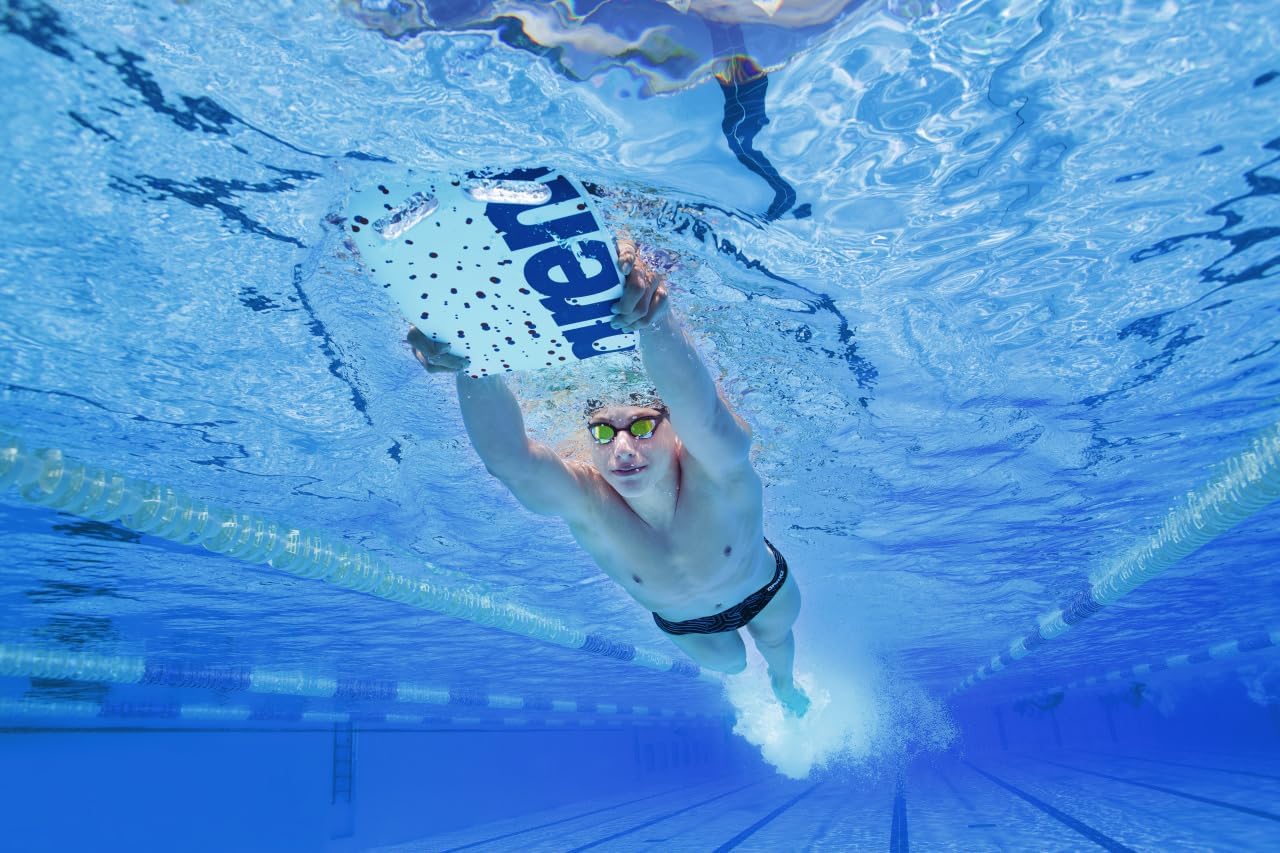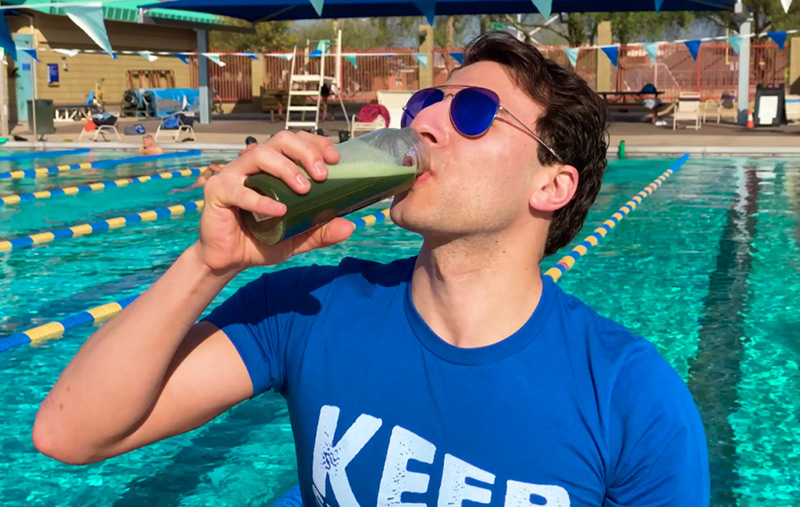The Ultimate Swimmer’s Diet focuses on optimizing performance through tailored nutrition. Understanding what to eat before, during, and after training, as well as maintaining proper hydration and balancing snacks, can significantly enhance a swimmer’s performance. This guide provides key insights into constructing a diet plan that supports intensive training and recovery.
Key Takeaways
- A balanced breakfast boosts energy levels and prepares the body for intense training.
- Mid-training nutrition should include easy-to-digest foods and plenty of fluids to maintain performance.
- Post-workout meals should focus on protein and carbohydrates for muscle repair and recovery.
- Hydration is crucial; swimmers must monitor their water intake and electrolyte balance to avoid dehydration.
- Meal prepping can save time and ensure that swimmers have the right nutrients available when needed.
Kickstarting Your Day: Breakfast for Champions
The Importance of a Hearty Breakfast
Starting your day with a hearty breakfast is crucial, especially if you’re a swimmer aiming for that perfect butterfly stroke or mastering the breaststroke. A balanced meal with complex carbohydrates, proteins, and a bit of healthy fat can fuel your body for the intense activities ahead. Think whole-grain toast or oatmeal paired with fruits like bananas or blueberries to keep your energy levels up until the afternoon.

The Importance of a Hearty Breakfast
Best Foods to Jumpstart Your Morning
To really kick off your morning right, focus on foods that rev up your metabolism and prepare you for a day of training or competition. Foods like oatmeal, whole wheat bread, and fruits such as apples and grapefruit are fantastic choices. Don’t forget a good source of protein like eggs or yogurt to support muscle health and recovery. A balanced breakfast ensures you’re not just full, but well-fueled.
Timing Your Breakfast Before Training
Timing is everything when it comes to pre-training nutrition. Eating too close to a workout can lead to discomfort, while eating too early might leave you hungry again before you start. A good rule of thumb is to have your breakfast about 1.5 to 2 hours before your training session. This gives your body enough time to digest and convert food into energy, ensuring you’re ready to perform those butterfly kick swimming moves or continue learning breaststroke without a hitch.
Fueling Up: Mid-Training Nutrition
What to Eat During Intense Workouts
During intense workouts, your body needs quick, easily digestible energy. Opt for high-carb, low-fat options like sports gels, dried fruits, or a small handful of grapes. These snacks get into your bloodstream fast, ensuring you have the energy to power through your session.
Hydration: Just as Crucial as Solids
It’s not just about the solids; staying hydrated is equally crucial. Aim to sip on water or an electrolyte-rich sports drink throughout your workout. This helps maintain your performance and prevent dehydration, which can significantly impact your swim time log.
Quick and Efficient Snack Ideas
When time is short, and you need a quick energy boost, go for snacks that combine a bit of protein with carbohydrates. A banana with a scoop of peanut butter or a low-fat yogurt drink can be perfect. These snacks help slow digestion a bit, keeping your energy levels more stable as you swim.
Post-Workout Recovery Meals
Why Recovery Nutrition is Key
After a grueling session in the pool, your body needs the right nutrients to repair muscles and replenish energy stores. The timing and composition of your post-workout meal can significantly influence your recovery speed and effectiveness.
Ideal Foods for Muscle Repair
To kickstart muscle repair, focus on a mix of proteins and carbohydrates. Here’s a quick list of some top recovery foods:
- A fruit smoothie enriched with protein powder
- Poached eggs on toast
- Whole grain crackers with peanut butter
- A glass of chocolate milk
These options provide a good balance of the necessary macronutrients to aid in recovery.
The Role of Proteins and Carbs Post-Workout
Proteins are crucial for muscle repair, while carbohydrates are essential for replenishing muscle glycogen. A recommended ratio is 3:1 carbs to protein for optimal recovery. This balance helps not only in muscle repair but also in preparing your body for the next challenge, whether it’s another training session or a competitive event.
The Power of Hydration
Understanding Your Water Needs
Hydration isn’t just about drinking water before a workout; it’s a day-long commitment. Bring a water bottle with you throughout the day to ensure you’re well-hydrated before you even hit the pool. This proactive approach helps you maintain optimal performance and avoid the pitfalls of dehydration.

Electrolytes: What Are They and Why You Need Them
Electrolytes are your best pals when it comes to maintaining the body’s balance. They help regulate your muscle function and nerve signals. Include a balanced electrolyte drink, especially during long training sessions, to replenish what you sweat out. Aim for drinks that provide a 6-8% carbohydrate solution to get the dual benefits of energy and hydration.
Signs You’re Not Drinking Enough
It’s easy to underestimate how much you need to drink, especially when you’re busy. If you’re not paying attention, dehydration can sneak up on you. Here’s a quick checklist to keep in mind:
- Feeling thirsty
- Dark-colored urine
- Dry skin
- Fatigue
Make hydration a key part of your swimmer’s diet plan to ensure you’re always ready to perform at your best.
Smart Snacking: Energy Boosters
Choosing the Right Snacks
Picking the right snacks can make or break your energy levels throughout the day. Choose energy-boosting snacks like bananas, yogurt, or a granola bar to keep you powered up. These snacks are not only delicious but also provide a quick source of carbohydrates to fuel your muscles.
Balancing Macronutrients in Snacks
It’s crucial to balance your intake of carbs, proteins, and fats. A good mix might include a banana for quick energy, some nuts for protein, and yogurt for a bit of fat. This combination helps maintain energy levels and supports muscle recovery.
When to Snack for Optimal Energy
Timing is everything! Snack about 30 minutes before a swim to boost your energy levels right when you need it. Post-training, grab a snack within 30 minutes to help with recovery. Remember, the goal is to refuel and prepare for the next challenge.
Mastering the Art of Meal Prepping
Benefits of Planning Your Meals
Organization is key in meal prepping. By planning your meals ahead, you ensure that you always have healthy options ready, preventing the temptation to grab less nutritious alternatives. This is especially crucial for swimmers who need consistent, high-quality fuel for their training.
How to Meal Prep Like a Pro
To start, gather all the ingredients you’ll need for the week’s meals. Here’s a simple step-by-step guide to get you going:
- Choose a variety of nutrient-rich foods to keep things interesting and balanced.
- Prepare large batches of staples like rice, pasta, and proteins.
- Portion out meals into individual containers.
- Store meals in the fridge or freezer based on when you’ll eat them.
Storing and Managing Prepped Meals
Proper storage is crucial to ensure the freshness and safety of your meals. Use clear, airtight containers and label them with the date. This not only helps in identifying the meals but also in managing your meal schedule efficiently. Rotate your stock to use the oldest meals first, reducing waste and keeping your diet fresh and varied.
Navigating Supplements and Vitamins
Do Swimmers Need Supplements?
While it’s tempting to jump on the supplement bandwagon, it’s crucial to ask yourself a few questions first. Why am I taking this? Does this product do what it claims? Is there research to back it up? Always consult a healthcare professional before starting any supplement regimen. Remember, many nutrients can be obtained from a well-balanced diet.

Do Swimmers Need Supplements?
Choosing the Right Vitamins
Swimmers have specific nutritional needs due to their intense training schedules. Here’s a quick rundown of essential vitamins:
- Vitamin D for bone health and immune function
- Iron to prevent fatigue and enhance endurance
- Omega 3s for heart health and reducing inflammation
- Magnesium for muscle function and recovery
Choosing the right vitamins involves understanding your personal health needs and training demands.
The Risks of Over-Supplementation
Overdoing it with supplements can lead to adverse health effects. It’s important to balance your intake and not rely solely on pills for nutrition. Excessive use of certain supplements like iron or vitamin D can cause more harm than good. Always aim to meet most of your nutritional needs through your diet and use supplements judiciously.
Remember: Always prioritize getting your nutrients from food first!
Embark on a journey to optimal health with our expertly curated selection of supplements and vitamins at Swim Time Log. Whether you’re a professional swimmer or a fitness enthusiast, our products are designed to enhance your nutritional intake and boost your performance. Visit our website to explore our range of supplements and make the best choice for your health needs.
Wrapping It Up
That’s a wrap on the ultimate swimmer’s diet! Remember, the key to optimal performance isn’t just about what you eat, but how you eat. Balance, variety, and moderation are your best pals. Whether you’re training for a competition or swimming for fun, fueling your body right will keep you at the top of your game. So, dive into these tips, mix up your meals, and keep those energy levels soaring. Happy swimming!
Read more: A Comprehensive Meal Plan for Swimmers to Enhance Endurance
AUTHOR
Sang Nguyen
Sang Nguyen is a former national swimmer for Vietnam who has transitioned into coaching. With a passion for fostering a healthy swimming community and connecting like-minded individuals,......Read More
BLOG
Maybe You Are Interested
Good Swim Meet Snacks: What to Eat for Optimal Performance
Good nutrition is crucial for swimmers to maintain energy, recover quickly, and perform at their...
Read More...Optimizing Your Performance: The Best Diet for Swimming Training
Optimizing your performance in swimming is not just about rigorous training; it’s equally crucial to...
Read More...Achieve Peak Performance with This Diet Chart for Swimmers
Whether you’re a novice or an expert swimmer, understanding the right diet is crucial for...
Read More...Eating Like a Champion: Exploring the Diet of Michael Phelps
Michael Phelps, renowned for his Olympic triumphs, has a diet as extraordinary as his swimming...
Read More...Muscle Gain for Swimmers: Tailoring Your Diet for Strength
Swimming is a demanding sport that requires a tailored approach to nutrition to support muscle...
Read More...A Comprehensive Diet Plan To Gain Weight For Swimmers
Swimming is a demanding sport that requires meticulous attention to nutritional needs to optimize performance,...
Read More...